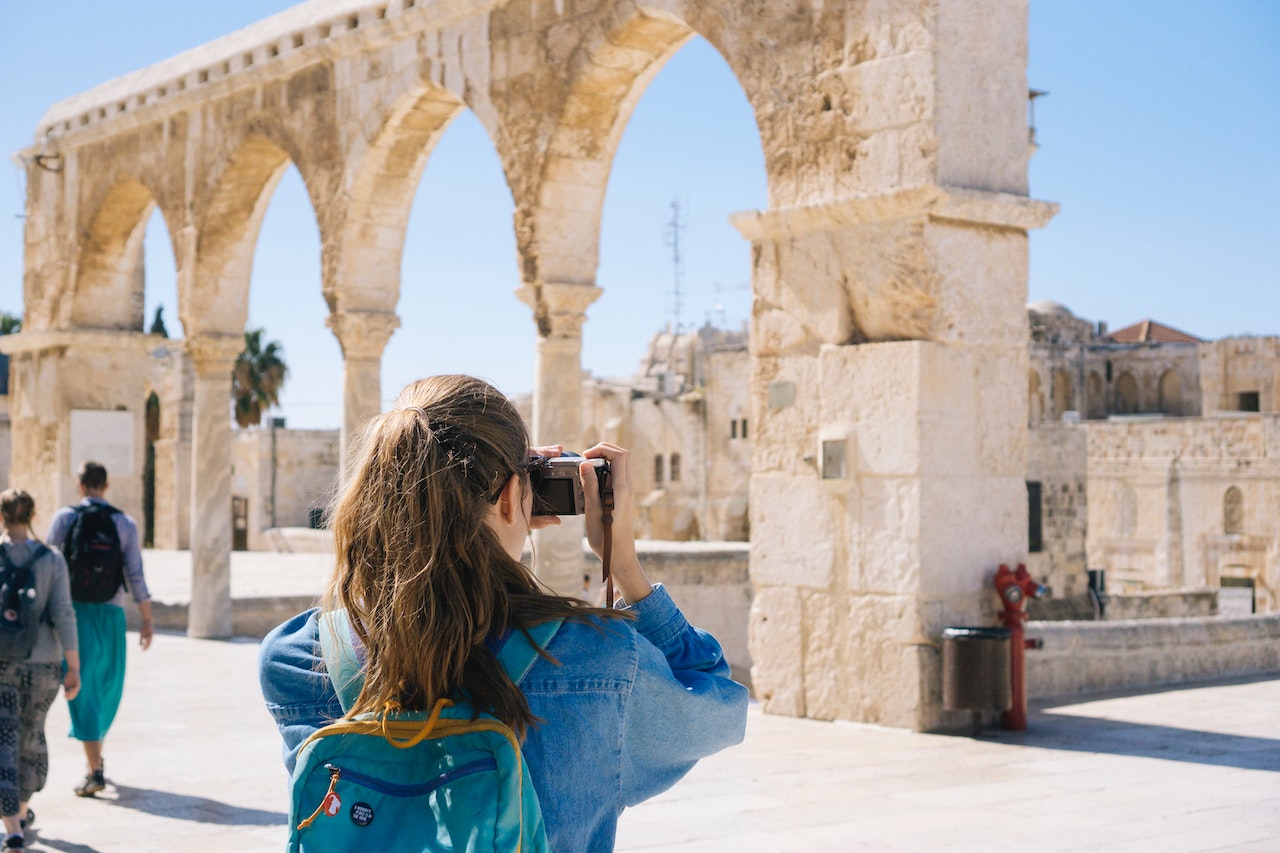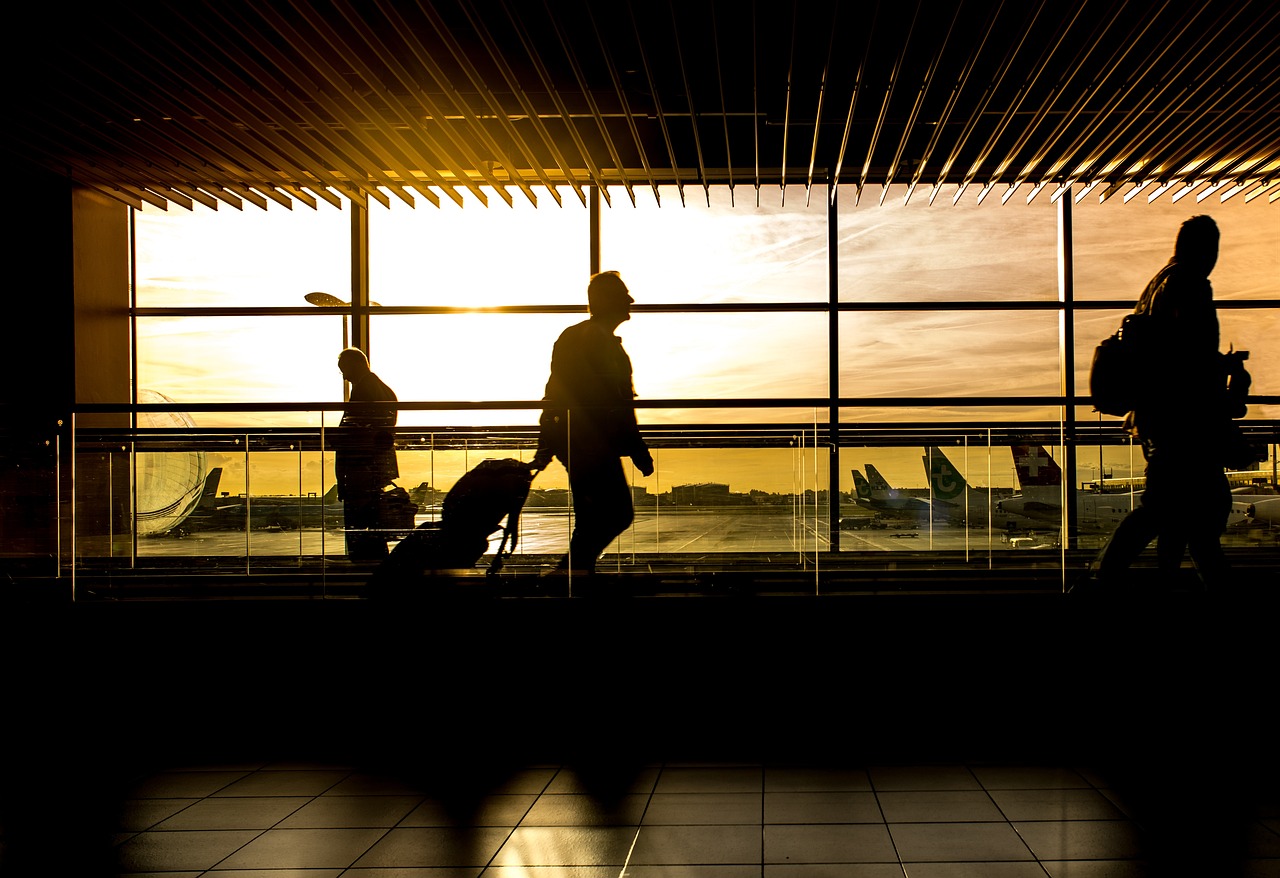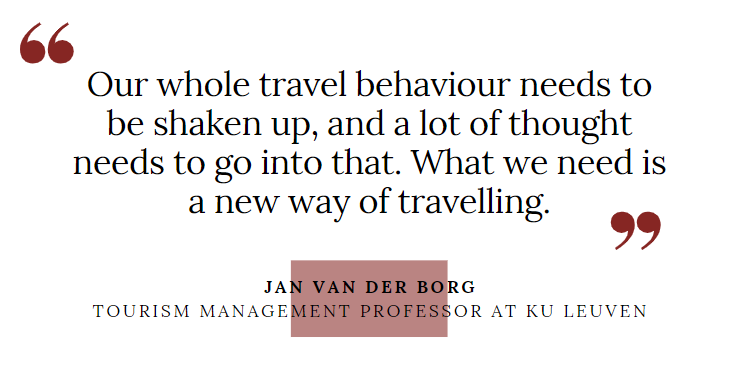With a growing number of people taking the time to travel more mindfully, the best question of the year – where are we going on holiday? – increasingly calls for more thought and research, accounting for both environmental considerations as well as moral and sociopolitical ones.
With concerns about sustainability gaining momentum, alongside issues of mass tourism and international conflict, some even feel that it is impossible to travel without compromising their environmental and moral conscience.
Jan Van der Borg, tourism management professor at KU Leuven, told The Brussels Times that on the global level the number of international travellers keeps rising, so on the broader scale these concerns are not putting the brakes on travel. Yet when viewed more closely, Van der Borg highlights changing trends.
"What I do see is that Generation Y and Z are increasingly and intensely concerned with sustainability issues. If destinations, airlines or companies cannot give assurances about sustainability, an increasing number of people opt not to travel to that destination or with that company. There really is a shift towards more sustainable travel behaviour."
Tourist traps and geopolitics
A growing number of websites and social media accounts are dedicated to warning people about tourist traps – often specific locations such as restaurants or shops but also entire cities.
"This feeds into the desire to move away from mass tourism," Van der Borg said. But on the flip side, the specialist points out that social media platforms – especially TikTok – can quickly generate "hype" among younger crowds, making products, shops or restaurants go "viral". "They sometimes go from quiet and alternative to mass and mainstream overnight."
Holidaymakers are also becoming more attuned to (global) politics. "People have been cancelling trips to Russia since the invasion of Ukraine whilst others are thinking twice about holidaying in Italy after the right-wing government took power. Some have sworn never to travel to Israel because they do not want to support a government that they feel is oppressing Palestinians."

A tourist photographing ruins in Israel. Credit: Pexels
Van der Borg notes that tourists are becoming "more choosy" and highlights their growing moral conscience as a positive development. But the expert is quick to point out that this is not universal: "The majority of travellers are still sticking to their previous (pre-pandemic) travel habits, not really taking any of these factors into account when booking vacations."
For most tourists, the political situation does not play a role in the choice of destinations, Pierre Fivet of the Association of Belgian Tour Operators told RTBF. "The tourist simply wants the country to be stable, they are looking for security for their holiday."
"Even if something happens in their chosen destination, such as major demonstrations, they forget about it very quickly, because their holidays are very important," said Fivet, adding the caveat that senior citizens are more prone to caution when booking trips.
Safety first?
Jean-Michel Decroly, professor of geographical sciences and tourism at ULB, agreed: as long as the safety of tourists is not endangered – by uprisings or armed movements fighting the regime, for example – travel trends change little after a fascist regime or the extreme right takes power, "Except in certain highly politicised sections of the population."
While the group of "ethical travellers" has certainly enlarged recently, they still only represent a small share of tourists. For most, political considerations (that don't spark civil violence) are not sticking points: "Price, safety and accessibility are still the issues that tourists prioritise, one might say unfortunately. Political or environmental issues, or the social effects of tourism, come second, third or fourth, if at all."
Still, interest in travelling more mindfully is increasing, even if not everyone is actually doing it yet. "These trends are not new, we could already see some changes before the pandemic, but maybe they were accelerated a bit when the world opened up again after about two years of health restrictions and travel bans," Van der Borg explains.
Where travel trends are changing more substantially is on the environmental front, with people increasingly sensitive about their carbon footprint and sustainability. "Increasingly, people do choose the most sustainable means of transport (train instead of plane). But what would be much more effective is a very radical discussion about whether it makes any sense to go to Spain or Greece for a day and a half at all."
While a quick (and cheap) weekend trip to Malaga or Venice is certainly possible, that day and a half will not fundamentally contribute to the quality of the traveller’s life, whether they go by bike, by car or by plane.
"That discussion is much more useful than simply switching from one mode of transport to another. Our whole travel behaviour needs to be shaken up, and a lot of thought needs to go into that," Van den Borg explained. "What we need is a new way of travelling."
For the tourism expert, this means a new attitude to travel: the goal should be to learn, meet locals, and try to understand different ways of life and cultures. "A number of people are now in the process of taking that step. We still have quite a way to go, but I am optimistic; if the initiative does not come from the government or businesses it will come from the consumers."
"As soon as travellers are convinced that something has to change, then destinations, airlines and hotel chains will also be forced to make the shift." Van der Borg stressed the importance of educational institutions such as universities in finding a new way of measuring tourism success.
Attitudes are changing, but some habits are hard to shake and our travel conscience is challenged constantly by our budget.


